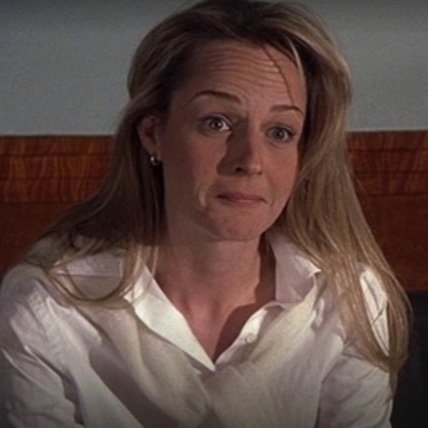Helen Hunt Filmography Part 10: Dr. T & The Women
Y2K was anything but a disaster for Helen Hunt. Dr. T & The Women kicked off her blockbuster year.
Welcome to the year 2000. A literal blockbuster year for Helen Hunt. She had four movies come out including two smash hits–Cast Away and What Women Want–and a cult classic–Pay It Forward.
And then there is Dr. T & The Women (2000), which is not a bad movie. It is, however, the beginning of the “Hey, this movie would be way more interesting if it centered on ANY other character than the white male lead” era of Helen Hunt’s career.
Note: I am not anti-white man. I am saying the rich, white man’s mid-life crisis in which he does everything except actually confront his privilege and mediocrity is the least interesting story anyone can possibly tell, and it has been told ad nausem.
This movie stars Richard Gere as Dr. T an ob/gyn who has a massively successful practice because he has a very good bedside manner.
He treats his (rich, white) patients as the queens they want to be, and encourages his hunting and golfing buddies to treat their wives better, which is not bad advice. However, his philosophy is patronizing and diminishes the actual person hood of the women he tries to care for.
He also has a crazy home life. His wife (Farrah Fawcett) of many years has a mental breakdown and ends up institutionalized.
His sister-in-law (Laura Dern) and her three daughters move in with him after her divorce, and she has a barely controlled drinking problem.
His oldest daughter (Kate Hudson) is getting married, but she’s actually in love with her college roommate (Liv Tyler).
His younger daughter keeps telling him she is fine and not to worry about her, which means she’s probably not okay. His office manager is barely keeping his practice and her life together.
But clearly the most interesting thing the movie could be about is how this guy avoids all these problems by having an affair with Bree (Helen Hunt), the new golf pro at his club.
(Though to be fair, I would also tell Helen Hunt all my problems.)
There are six women who have more interesting stories than Dr. T, but all of them are filtered and seen through his perspective.
Dr. T falls prey to a chivalry that sees women as exalted, but fragile treasures. His motives seem good, but it’s an insidious form of misogyny that controls with velvet chains. Women are robbed of their agency and freedom through coddling. Their identity is smothered with comfort and ease.
This form of infantilizing leads to the literal break in his wife’s psyche as she reverts to a childlike state, running barefoot through the mall and dancing naked in the fountain. In his daughters, his indulgence leads them to hide their true desires and identity from both him and themselves.
It would have been interesting to see the layers of suffocation and social expectations on these women from their point of view. Their self-discovery and pursuit of a life that reflects their true selves is portrayed as the collapse of Dr. T’s world. It would be better if it were portrayed as the women’s joyful experience of freedom.
When, towards the end of the movie, Dr. T makes a desperate attempt to gain exclusive status with Bree, he offers to take her away and promises that she’ll never have to work or worry about anything again.
She looks at him like he’s nuts, and asks why in the world would she want that.
She likes him, but she also likes her freedom and creating her own life. She has no interest in being his pet, no matter how pampered.
This movie almost tells an interesting story about women. Ultimately it takes the easy out and only explores the male perspective.






